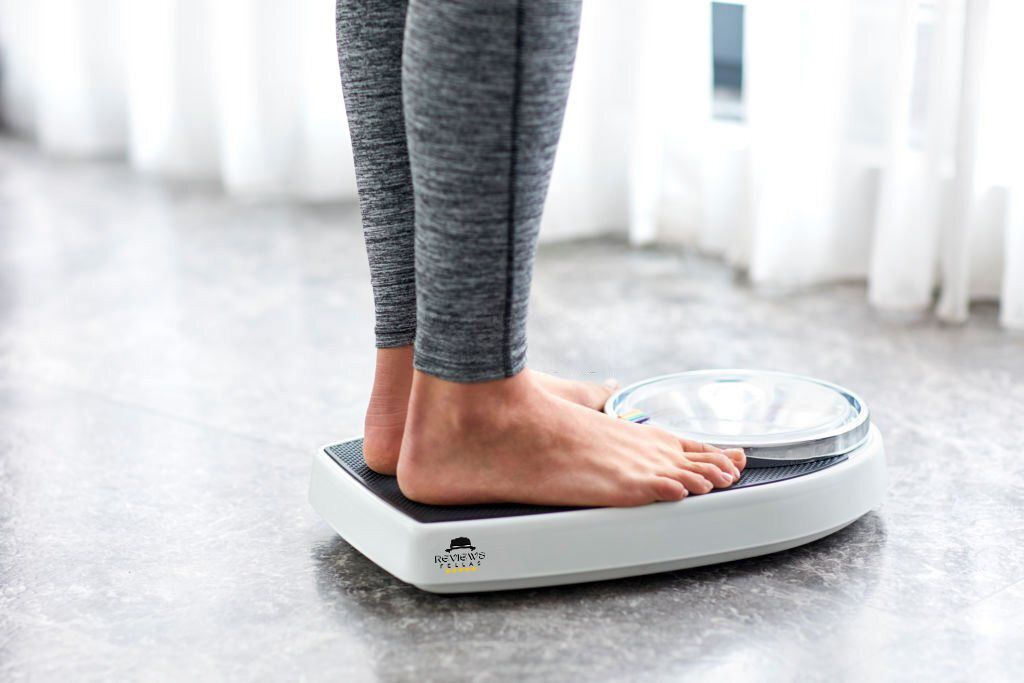As we age, our bodies change, and that can make it harder to maintain a healthy weight. For women over 50, the challenge is even more difficult. But there is a solution: intermittent fasting.
A question may arise in your mind, is intermittent fasting still beneficial for women over 50? The answer is yes! Intermittent fasting can be incredibly beneficial for women over 50, as well as many other groups of people.
If you’re a woman over 50 and looking for a healthier lifestyle, intermittent fasting might be the answer. But does it work for everyone? In this article, we’ll explore the tips, common concerns, benefits, and side effects of intermittent fasting for women over 50 and how to get started.
What is Intermittent Fasting?
A diet approach called intermittent fasting involves alternating fasting times with periods of eating. During this period, you restrict your calorie intake to 6-18 hours and then eat normally. Recent years have seen an increase in interest in intermittent fasting as a way to improve health and lose weight and body fat.
Also, an intermittent fasting diet plan has other health benefits, such as boosting metabolic health, losing belly fat, reducing cravings for junk food, and maintaining proper body weight. And lastly, practice intermittent fasting just once a week may help to improve mental health as well.
Intermittent Fasting Tips for Women Over 50

Intermittent fasting has been gaining popularity in recent years due to its ability to help people lower high blood pressure levels and improve overall health. And for women over 50, this dieting technique can be particularly beneficial.
Intermittent fasting can be a beneficial practice for women over 50, but it's important to approach it with care and consideration. Here are some tips for women over 50 who are looking to incorporate intermittent fasting into their lifestyle.
Start Slowly
If you're new to intermittent fasting, start slowly by gradually increasing the length of your fasting window. Begin with an 8 to 12-hour fasting period alternate day method and gradually work your way up to longer fasting periods.
Plan Your Meals
Decide on the meals you'll eat during your eating window and plan them in advance. Prioritize protein, and ensure to choose healthy, nutrient-dense healthy foods to ensure you're getting enough protein and the nutrients you need.
Choose the Right Fasting Method
There are several different intermittent fasting methods to choose from, and you should find the one that works best for you. There are many best diets for women over 50, and methods that allow for more flexibility, such as the 16/8 method or the 5:2 diet, may be more sustainable.
Be Mindful of Your Nutrient Intake
As we age, our bodies require more nutrients to stay healthy. It's important to make sure you're getting enough vitamins, minerals, and protein during your eating window to support your overall health.
Drink plenty of water
Keeping hydrated by drinking plenty of water and other hydrating fluids during your fasting period can help reduce hunger and prevent dehydration. This is especially important for women over 50, as dehydration can lead to a variety of health problems.
Listen to Your Body
Pay attention to your body's signals and adjust your fasting schedule as needed. If you feel unwell or excessively hungry, you may break your fast and eat something.
Be Consistent
Consistency is key when it comes to intermittent fasting. Stick to your chosen method and schedule as much as possible to see the best results.
Stay Active
Regular exercise can help support weight loss and improve overall health, making it an important part of an intermittent fasting routine for women over 50.
Intermediate fasting app
To assist people with intermediate fasting, a number of apps can be found on the Internet. In addition, you can set your daily and weekly fasting schedule in a timely manner.
Before beginning intermittent fasting, speak with your healthcare expert if you have any medical conditions or are taking medication.
Benefits of intermittent fasting for women over 50

For women over 50, intermittent fasting may have several potential health benefits too. Here are some of them:
Improved weight loss
As women age, they have a slower metabolism, making it more difficult to lose weight. Calorie restriction or fasting may help boost metabolism and aid in weight and fat loss, especially when combined with a healthy diet and regular exercise.
Reduced inflammation
Chronic inflammation is associated with several age-related diseases, such as arthritis and heart disease. Intermittent fasting has been found to reduce inflammation and improve immune function and healthy aging.
Improved insulin resistance and sensitivity
Insulin resistance is a common problem in women over 50, which can lead to diabetes and other metabolic disorders. Intermittent fasting may help improve insulin sensitivity and reduce insulin levels drop and the risk of developing these conditions.
Lower risk of chronic diseases
A lower risk of developing chronic diseases like cancer, heart disease, and diabetes has been linked to intermittent fasting.
Improved cognitive function
Some studies suggest that intermittent fasting may improve cognitive function and reduce the various risk factors of neurodegenerative diseases such as Alzheimer's.
How to Get Started with Intermittent Fasting for women over 50

When you first begin intermittent fasting, it may seem daunting at first, but with a few simple steps, it can be a manageable and effective way to improve your health. Intermittent fasting can be challenging for some people. If you’re not used to fasting, it may take some time to adjust.
If you're interested in intermittent fasting, here is how to start:
- You need to make a plan first.
- Don’t rush; start slowly
- Make a meal plan for yourself
- Try to stay hydrated during fasting time and restrict feeding.
- Don’t take too much pressure
- Talk to a dietitian or physician
Remember, the intermittent fasting method may not be suitable for everyone, and it's important to listen to your body and adjust your fasting schedule as needed. Choose the method that works best for your lifestyle and goals.
Common Concerns About Intermittent Fasting for Women Over 50

Intermittent fasting can be a beneficial practice for women over 50, but there are some common concerns breastfeeding women have to be aware of. These are some of the most common concerns and how to deal with them:
Dehydration
Fasting can lead to dehydration, which can be particularly concerning for women over 50. It's important to stay hydrated during the fasting period by drinking plenty of water and other hydrating fluids.
Nutrient Deficiencies
As we age, our bodies require more nutrients to stay healthy, and fasting can increase the risk of nutrient deficiencies. It's important to make sure you're getting enough vitamins, minerals, and protein during your eating window to support your overall health.
Blood Sugar Imbalances
Fasting can cause blood sugar imbalances, which can be particularly concerning for women over 50 who may be at risk for diabetes or other blood sugar disorders. Maintaining a healthy blood pressure, sugar control and glucose level is crucial is essential and work with a healthcare professional if you have any concerns.
Hormonal Imbalances
Women over 50 may experience hormonal imbalances that can be exacerbated by fasting. Adjust your fasting schedule according to your body's needs and adjust your fasting schedule as needed to support your hormonal health.
Negative Effects on Mood
Fasting can lead to irritability, fatigue, and other negative effects on mood. Fasting schedules should be adjusted based on your body's needs and your fasting schedule as needed to support your mental and emotional well-being.
Interference with Medications
Fasting can interfere with some medications, particularly those that require food to be effective.
Intermittent Fasting and Menopause
A woman's body undergoes significant hormonal changes during menopause which can lead to a variety of symptoms such as weight gain, hot flashes, and mood swings. Intermittent fasting can be a beneficial practice for women going through menopause, as it can help manage some of these symptoms.
Here are some ways intermittent fasting may benefit women going through menopause:
Weight loss
Menopause is often associated with weight and some muscle mass gain too, particularly around the midsection. Intermittent fasting has been shown to help with weight loss by reducing calorie intake and improving insulin sensitivity.
Hormonal Balance
Menopause is a time of significant hormonal changes, and intermittent fasting may help balance these hormones by reducing insulin levels, which can have a positive effect on estrogen levels.
Reduced Inflammation
There are a number of health problems associated with menopause, including increased inflammation in the body.
Improve Immune Function
Intermittent fasting has been shown to reduce inflammation and improve markers of immune function.
Improved Mood
Menopause can also lead to mood swings and irritability. It has been proven that intermittent fasting can improve health effect on mood, possibly due to its effects on hormone secretion and neurotransmitter levels.
Improved Cognitive Function
Menopause can also lead to cognitive decline and memory problems. Intermittent fasting has been shown to improve cognitive function and protect against age-related cognitive decline.
It's important to note that women going through menopause may need to adjust their fasting schedule to accommodate for their changing hormonal needs. You may discuss any new diet or fasting regimen with your doctor, especially if you have any underlying health conditions.
Signs to stop water fasting
- An inability to control hunger pangs or intense cravings.
- Feeling dizzy or lightheaded, especially after standing up suddenly.
- The inability to perform your daily activities due to extreme fatigue or weakness.
- An upset stomach, nausea, or vomiting.
- Insomnia or feeling faint.
- Rapid or irregular heartbeat.
- Breathing difficulties
- Having difficulty concentrating, mental fog, or confusion
- Dry mouth or excessive thirst.
- Dark urine or decreased urine output may indicate dehydration.
Conclusion
Intermittent fasting can be a beneficial practice for women over 50, offering potential benefits such as improved weight loss, reduced inflammation, better insulin sensitivity, hormonal balance, improved mood, and cognitive function. It allows your body to burn more calories and achieve results. For women over 50, intermittent fasting can be especially beneficial.
However, it's important to approach intermittent fasting with care and consideration, starting slow, staying hydrated, being mindful of nutrient intake, considering hormonal needs, exercising regularly, and consulting with a healthcare professional.
With these best practices in mind, women over 50 can safely and effectively incorporate intermittent fasting into their health and wellness routine.
F.A.Q
Q: When does the body start burning fat during fasting?
Ans: Basically, when you stop eating food, your body doesn't get calories from it. Which can lead to a reduction in body fat while preserving lean muscle mass throughout. The body then begins to burn stored fat too.
Q: Is intermittent fasting safe?
Ans: When done correctly, intermittent fasting is generally safe, but if you have any concerns, contact a nutritionist or dietitian.
Q: How intermittent fasting affects female hormones?
Ans: Female hormones can be affected by intermittent fasting in addition to age, weight, and preexisting health conditions.
Q: Can you drink water while intermittent fasting?
Ans: Intermittent fasting allows water consumption. Staying hydrated while intermittent fasting results in helps you control hunger and cleanse toxins from the body.
Water doesn't break your fast because it's calorie- and nutrient-free. as long as they don't contain calories.


